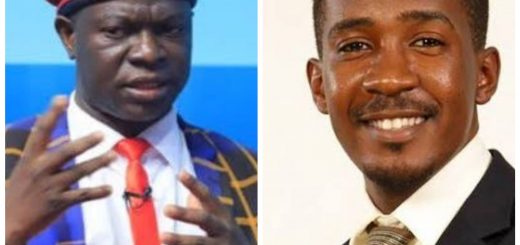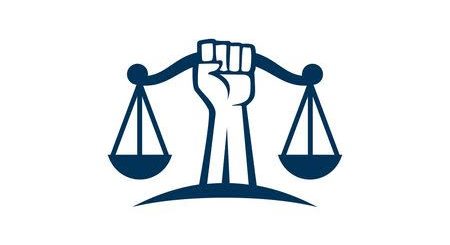How to recover your property that you registered in the names of your wife or children in Uganda. The principles of constructive and resulting trusts in Uganda.

In Uganda many men and women during time of joy, happiness and love transfer properties to their spouses, children and relatives. Sometimes it is because they are blindfolded by love and some other times they are trying to hide the extent of their wealth for one reason or another. The reasons for registering property in the name of a spouse or a child are numerous but the most common ones are the two above and trying to put property beyond the reach of a spouse during potential divorce proceedings. Sometimes the reasons involve hiding illicitly acquired wealth and other fraudulent purposes but that is a concern for another day.
In Uganda, outside divorce proceedings you are entitled to claim a share in the property registered to or owned by another person whether a spouse, child, relative or a complete stranger on the basis of contribution to the acquisition of the property. This is referred to as a resulting trust. You can also claim an interest in the property registered to or owned by another person on the basis of a contribution to the repair or improvement of the property as a result of a common intention that you would acquire an interest in the property. This is referred to as a constructive trust.
During divorce proceedings spouses are entitled to share in matrimonial property depending on their contributions during marriage. The contributions of a spouse during marriage need not be financial. There is no hard and fast rule of what constitutes marital property. According to the Supreme Court in Rwabinumi v Bahimbisomwe (Civil Appeal-2009/10,
Matrimonial property is understood differently by different people. There is always property which the couple chose to call home. There may be property which may be acquired separately by each spouse before or after marriage. Then there is property which a husband may hold in trust for the clan. Each of these should, in my view be considered differently. The property to which each spouse should be entitled is that propertywhich the parties chose to call home and which they jointly contribute to.”
It is not true that your property that you own before exchanging the vows in Church becomes joint property or marital property. It is also not true that all property that you acquire during the subsistence of the marriage becomes marital property. Both a man and a woman can acquire and own individual property during the existence of the marriage. According to Justice Kisaakye while Article 31(1) (b) of the Uganda Constitution (1995) guarantees equality in treatment of either the wife or the husband at divorce, it does not, in my opinion, require that all property either individually or jointly acquired before or during the subsistence of a marriage should in all cases, be shared equally upon divorce.
Claiming an interest in your spouse’s property during divorce proceedings is straight forward. What we are educating you about today is claiming an interest in property registered to or owned by another person such as your spouse outside divorce proceedings and your child or relative. There are two different ways to claim an interest in property registered to another person. They are:
- Constructive trust
- Resulting trust
Constructive trusts
According to Halsbury’s Laws of England a constructive trust attaches by law to specific property which is neither expressly subject to any trusts nor subject to a resulting trust but which is held by a person in circumstances where it would be inequitable to allow him to assert full ownership of the property against a person who contributed to its improvement with the owners express or implied consent or when the owner had constructive or actual knowledge of the third party. For example a stranger who receives property in the circumstances where he has actual or constructive notice that it is trust property being transferred to him in breach of trust will, however, also be a constructive trustee of that property.
A constructive trust arises by operation of law whenever the circumstances are such that it would be unconscionable for the owner of property (usually but not necessarily the legal estate) to assert his own beneficial interest in the property and deny the beneficial interest of another. In the first class of case, however, the constructive trustee really is a trustee. He does not receive the trust property in his own right but by a transaction by which both parties intend to create a trust from the outset and which is not impugned by the plaintiff. His possession of the property is coloured from the first by the trust and confidence by means of which he obtained it, and his subsequent appropriation of the property to his own use is a breach of that trust. Well-known examples of such a constructive trust are McCormick v Grogan (1869) LR 4 HL 82 (a case of a secret trust) and Rochefoucald v Boustead [1897] 1 Ch 196 (where the defendant agreed to buy property for the plaintiff but the trust was imperfectly recorded)
A resulting, implied or constructive trust—and it is unnecessary for present purposes to distinguish between these three classes of trust—is created by a transaction between the trustee and the cestui que trust in connection with the acquisition by the trustee of a legal estate in land, whenever the trustee has so conducted himself that it would be inequitable to allow him to deny to the cestui que trust a beneficial interest in the land acquired. And he will be held so to have conducted himself if by his words or conduct he has induced the cestui que trust to act to his own detriment in the reasonable belief that by so acting he was acquiring a beneficial interest in the land.”
Gissing v Gissing Lord Diplock apparently equated it (at p 905B-C)
Constructive trusts were applied by the High Court in Stanbic (U) Ltd v Joseph Aine & Ors (HCT-00-CC-CS 314 of 2005) and Ntungwa v Lukangira (Civil Suit 122 of 2015). In Erina Lam Oto Omgom v Opoka and Anor (Civil Appeal 91 of 2019) Justice Mubiru stated that a Court of equity will not allow an owner of land, who permitted a third party to expend money on the land based on the supposition that the land was his or her own, afterwards to assert his or her title to the land.
Resulting trust. Making contributions to the acquisition of the property
A resulting trust a rises where a person makes financial contribution to the acquisition of property but the property is registered in the names of another, equity imposes a trust on the property in favor of the contributor giving the contributor an equitable interest in the purchased property proportional to each contributors contribution. It also arises where a person makes a voluntary transfer of property without compensation without intending that the transferee to have the beneficial interest in the property. A resulting trust is a trust imposed by law when property is transferred under circumstances suggesting that the transferor did not intend the transferee to have beneficial interest in the property.
Where there is a voluntary transfer of property to another without consideration there is a presumption of a resulting trust by equity. The presumption requires the recipient to show there is intention of a gift. However as a result of Section 60 (3) of the Law of Property Act 1925, in the UK, this presumption does not apply in the case of voluntary transfers of land. This concept was further demonstrated in the case of Ali v Khan [2002] (EWCA Civ 974). In Uganda there is no corresponding section that removes the presumption.Per Lord Browne-Wilkinson in Westdeutsche Landesbank Girozentrale v Islington LBC [1996] AC 669) the presumption of resulting trust is rebutted by evidence of any intention inconsistent with such a trust, not only by evidence of an intention to make a gift.
The presumption of a resulting trust does not apply in respect of a transfer to a spouse or a child but a person can prove a resulting trust without relying on the presumption. Just as the starting point where there is sole legal ownership is sole beneficial ownership, the starting point where there is joint legal ownership is joint beneficial ownership. The onus is upon the person seeking to show that the beneficial ownership is different from the legal ownership. So in sole ownership cases it is upon the non-owner to show that he has any interest at all. In joint ownership cases, it is upon the joint owner who claims to have other than a joint beneficial interest. A person who is not registered on the title is entitled to prove that regardless of not being on the title the person has a beneficial interest in land. The Torrens system of land registration is such that the legal interest and the beneficial interest in the land can belong to different person.
Some judges of the High Court of Uganda erroneously think that the indefeasibility of title in the Registration of Titles Act prevents a person not registered on the title from proving an interest in the land but both the Registration of Titles Act and the Land Act allow individuals to have beneficial interests in land without being registered on the title. Therefore there is no law in Uganda that can impeach the beneficial interest of a person not registered on the title without violating the right to own property under article 26 of the Constitution of Uganda. So if you want to recover your property that you registered to another person you can sue and rely on either a constructive or resulting trust.
Read More
- Four years of IGG Beti Kamya drowned the Inspectorate of Government (IG) deeper into oblivion and irrelevancy but it Can be redeemed
- The Proposal to Make Magistrates Grade Ones Chief Magistrates is an efficient use of resources that will improve service delivery in Uganda
- If Magistrates Courts in Uganda are less competent and more prone to corruption does it mean that the poor deserve inferior justice to the rich.
- Women Members of Parliament (MPs) in Uganda are the most egregious discrimination against men in Uganda
- The UPDF Amendment Bill 2025. A proposed compromise that could protect political opponents of the ruling party.


